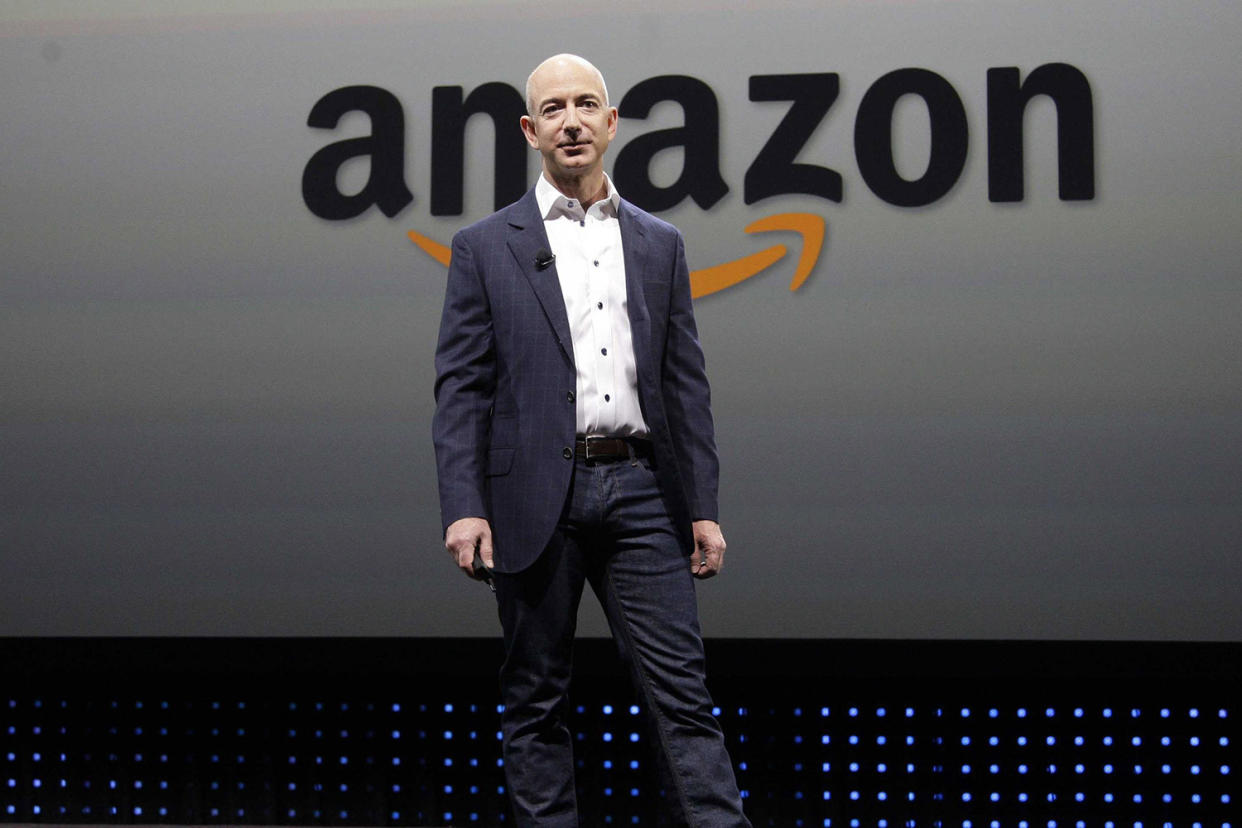For Amazon investors, all eyes are on Prime and AWS

Amazon (AMZN) is set to report after the bell this Thursday, and all eyes will be on Amazon Prime and Amazon Web Services (AWS) data.
Last quarter, Amazon beat expectations by a very big margin, and so the bar may be set high for the online retailer. Consensus estimates calls for $29.54 billion in Q2 sales and $1.11 earnings per share (EPS), with five analysts having raised their EPS estimates within the past 30 days.
Q2 is one of the few quarters Amazon is expected to be profitable, something that the company has started to deliver on more consistently over the past few quarters.
Amazon’s business can essentially be split up into two big segments: e-commerce and AWS.
Expectations for the retail side of the business are very strong. Nonstore retailers (aka online retailers) have seen their sales grow by double digits since 2015, and Amazon has historically outperformed the rest of online retail. This is reflected in estimates: as nonstore retail sales grew roughly 13% year over year in Q2, Amazon is expected to have grown around 28% year over year. Amazon has clearly proven itself as the leader in the e-commerce sector, and exceptional results are expected.
It’s “Prime” time
Stifel analysts are expecting commentary on Amazon prime subscribership, and they expect other analysts will hammer management with questions about it during the earnings conference call. Amazon has never disclosed the number of Prime subscribers, but often boasts about how much it is growing. Relatedly, management may also touch upon the impact of Prime Day on membership.
The number of prime subscribers is a key driver for Amazon, with Cowen and Company analysts calculating that around half of Amazon’s sales come from Prime subscribers as they have been shown to spend a lot more than non-Prime members.
More on AWS
Christian Magoon, the founder of an ETF that solely holds companies with online retail exposure of around 70% (ticker: IBUY), believes that AWS results are likely to get more scrutiny from investors as there is a “complacency” in the retail segment of the business. Wall Street is already expecting e-commerce to do very well. On the other hand, AWS has very strong competition, from the likes of Microsoft (MSFT) and Google (GOOG), with price cuts occurring quite frequently.
AWS is Amazon’s cloud computing services business that has taken the world by storm.
“AWS performance [will] be a key focal point and sentiment driver,” BAML analyst Justin Post said. He noted that there were actually no price cuts in the second quarter for AWS, a change from the norm, and a bullish factor for Q2 earnings. In the longer-run, price cuts are likely though, with Credit Suisse expecting prices to fall 20% year over year by the end of 2016.

Of course, even with price cuts expected, AWS is still the clear leader in the cloud computing industry right now, as the Goldman Sachs chart above shows. However, the chart also shows that other major cloud players, such as Microsoft, are starting to grow faster than Amazon.
And what about profits?
Post also notes that a key risk is whether Amazon will continue to aim for profitability. Historically, the company has run losses, in an attempt to maximize growth. He also notes that Bezos has continued to talk about investing in “big bets” for the company.
Magoon believes that this is a risk as well, but feels market reaction will be dependent on what is responsible for turning Amazon from a profit to a loss. If it’s based upon “one time charges,” such as buying more planes, ships and trucks to improve shipping infrastructure, Magoon believes that the market is more likely to be forgiving. If the losses are due to investments in devices, the market may react in a more negative manner.
—
Rayhanul Ibrahim is a writer for Yahoo Finance.
Read more:
From biomass to nuclear: The evolution of American energy usage since 1776
America’s big companies are about to repeat a financial crisis-era losing streak
As the stock market hits new highs, Wall Street is getting more skeptical
These trillion-dollar categories are driving Amazon’s growth

